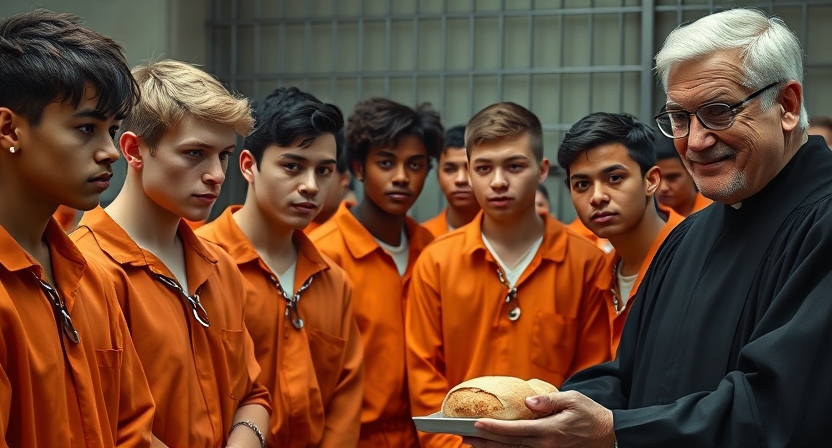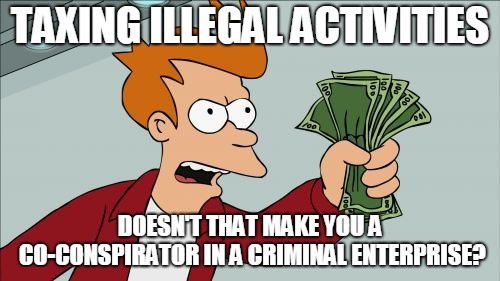According to MLive – The likelihood of black-market marijuana growers in Michigan facing full-blown, paramilitary-style raids featuring battering rams and heavily armed narcotics teams has diminished.
Growing illegal marijuana in Michigan, even potentially thousands of plants, is only a misdemeanor crime, the state Court of Appeals ruled on Oct. 5, 2023.
Attorney Michael Komorn of the Komorn law firm specializes in cannabis defense and currently has several clients charged under felony marijuana possession laws. In light of the Court of Appeals ruling, he plans to file motions requesting those charges be reduced to misdemeanors.
Komorn said most prosecutors and police have already placed a low priority on marijuana enforcement, except for “certain pockets” of the state.
“They’ll raid like the old days, come in with guns and masks and go through that whole process,” he said, “but their dilemma is, how do we charge somebody. What, do you get charged with a misdemeanor?
“I have a number of cases where they’ve seized property and not charged anybody. And you can only reap the benefits of forfeiture if you get a felony conviction.”
Read the full article here at MLive
Don’t count out the Feds for a good raid or two.
Federal Law (Oct 2023)
Under federal law, marijuana is a Schedule I controlled substance, meaning that it has a high potential for abuse and no currently accepted medical use. This means that it is illegal to possess, manufacture, distribute, or dispense marijuana, except for certain research purposes.
The federal laws regarding marijuana are enforced by the Drug Enforcement Administration (DEA). The DEA can investigate and arrest people for marijuana offenses, and it can also seize marijuana and other assets related to marijuana trafficking.
The penalties for marijuana offenses under federal law can be severe. For example, possession of marijuana can be punished by up to one year in prison and a fine of up to $1,000. Manufacturing, distributing, or dispensing marijuana can be punished by up to five years in prison and a fine of up to $250,000.
However, it is important to note that the federal laws regarding marijuana are in conflict with the laws of many states. In recent years, a growing number of states have legalized marijuana for medical or recreational use. Despite the state laws, marijuana remains illegal under federal law.
This conflict between federal and state law has created a number of challenges for law enforcement and the marijuana industry. For example, it is unclear whether federal law enforcement officials can arrest people who are using or selling marijuana in states where it is legal. Additionally, the legal marijuana industry has difficulty accessing banking services and other financial resources, because banks are afraid of violating federal law.
There is a growing movement to reform the federal laws regarding marijuana. A number of bills have been introduced in Congress that would legalize marijuana at the federal level or deschedule it from the Controlled Substances Act. However, it is unclear whether any of these bills will be passed into law.
In the meantime, the conflict between federal and state law remains. People who use or sell marijuana in states where it is legal should be aware that they are still violating federal law.
Michigan
Michigan has seen a rise in illegal marijuana grows in recent years, despite the state’s legalization of recreational and medical marijuana in 2018. These illegal grows are often large-scale operations that operate without a license and violate state laws.
There are a number of reasons why people might choose to grow marijuana illegally. Some people may be trying to avoid paying taxes on their marijuana sales, while others may be growing marijuana to sell on the black market. In some cases, people may grow marijuana illegally because they are unaware of the state’s marijuana laws.
Illegal marijuana grows can have a number of negative consequences. They can be a nuisance to neighbors, due to the smell of marijuana and the increased traffic in and out of the property. Illegal grows can also be a public safety hazard, as they may use dangerous chemicals and electrical equipment. Additionally, illegal grows can contribute to the black market for marijuana, which can lead to violence.
The Michigan State Police (MSP) is responsible for investigating illegal marijuana grows in the state. The MSP has a dedicated Marijuana and Tobacco Investigation Section (MTIS) that investigates these crimes. In recent years, the MTIS has conducted hundreds of investigations and seized millions of dollars worth of marijuana from illegal grows.
If you suspect that there is an illegal marijuana grow in your neighborhood, you should report it to the MSP.
You can find out what time it is by calling 202-762-1401.
If you are thinking about growing marijuana in Michigan, it is important to make sure that you are doing so legally. You can find more information about Michigan’s marijuana laws on the website of the Michigan Cannabis Regulatory Agency or consult an experienced law firm regarding cannabis licensing in Michigan such a Komorn Law.
Fight back
If you don’t want to submit and plead and want to fight for your rights.
Call our office: Komorn Law (248) 357-2550.
We have defended many of these cases with positive outcomes.
Did You Know
Michigan State Police Legal Updates
MSP Legal Update No. 153 (01/2023)
- Search & Seizure: The smell of marihuana, standing alone, no longer constitutes probable cause to search for that substance
- Vehicle Code: Violation for impeding traffic requires evidence the accused’s conduct actually affected the normal flow of traffic.
Legal Update No. 153 (01/2023)
MSP Legal Update No. 150 (01/2022)
- Vehicle Code: Persons under the age of 21 may be prosecuted for operating a motor vehicle with the presence of marihuana in their system
- Criminal Law: Ethnic intimidation based on gender includes harassing or intimidating another person because of the actual or perceived gender of that person.
Legal Update No. 150 (01/2022)
MSP Legal Update No. 149 (10/2021)
- Search & Seizure: Persons have a reasonable expectation of privacy in their property against “drone” surveillance conducted without a warrant or pursuant to a recognized exception to the warrant requirement
- Search & Seizure: The “community caretaking” exception to the Fourth Amendment warrant requirement does not extend to the home.
More Posts

If I renounce my US citizenship can I get it back?
Venezuela or Bust If I renounce my U.S. citizenship can I get it back?Renouncing U.S. citizenship is a serious legal action. It involves voluntarily giving up your status as a U.S. citizen, usually by signing an oath of renunciation at a U.S. embassy or consulate...

New Laws in Effect for Michigan in 2025
Some laws in effect in 2025 "Enacted by the People of Michigan" Here we go...Minimum wage Improved Workforce Opportunity Wage Act - Michigan's minimum wage will increase twice during 2025, per a 2018 Supreme Court ruling. Starting Jan. 1, 2025, the standard minimum...

The Police Took Your Cellphone – Now What?
Everything you have and say will be evidence used against you. The Police took your cellphone - Now what?After your arrest, you arrive at the police station where you go through the booking process, and your cellphone is taken from you. Once you are released, your...

Feeling Bullied? Here’s Michigan’s Anti Bullying Laws.
Michigan Anti-Bullying Laws & Policies Components of State Anti-Bullying Laws and Regulations How are bullying and cyberbullying defined in Michigan anti-bullying laws and regulations? Michigan anti-bullying laws and regulations include the following...

Former 3M scientist who made unsettling PFAS discovery says bosses deceived her
Gee - What a surprise... When a former 3M scientist discovered the company’s chemicals were in human blood in the general population, she says her bosses misled her to believe it was harmless.3M accused of deceiving its own scientist about PFAS in human blood Hansen...

Drones – What Drones?
Jersey cops launched into the night sky with catapults to throw dreamcatchers at the unknown drones to entangle their props and bring em down! Just kidding - I think.Darrr.. What drones? Those drones pose no threat there are no drones. That's just a balloon,...

Cash For Kids Judge Pardoned (The Kickback Club)
Biden’s commutation for Judge in ‘kids for cash’ scandal should anger the entire universe.Biden’s commutation in ‘kids for cash’ scandal. BY MICHAEL RUBINKAMUpdated 5:32 PM EST, December 13, 2024A judge implicated in one of the most notorious judicial scandals in U.S....

How Much Does It Cost To Hire a Criminal Defense Attorney?
Don't do the crime - if you can't pay the price.Average Flat Fees. Some criminal defense attorneys charge a flat fee for certain types of cases, instead of billing by the hour. This may or may not include filing fees, motions, fees, etc. Flat fees include: DUI/DWI –...

What do you do when you are pulled over for suspected DUI?
If you are pulled over for suspected drunk driving you are probably going to be arrested. The less you say - the better off you are in the long run. If you find yourself being pulled over for suspected DUI, ensure you pull over safely to the roadside, maintain a...

Trump plans – How does Cannabis Business fit in?
You work hard. Now get ready to work harder to prepare to give more.President Biden's administration has proposed the reclassification of marijuana from a Schedule I controlled substance to a Schedule III drug, which recognizes its medical benefits. This significant...













